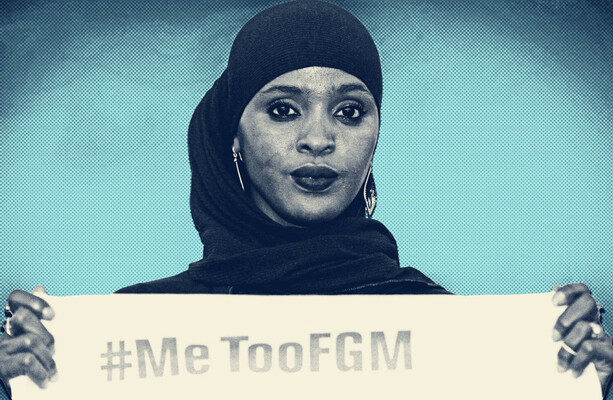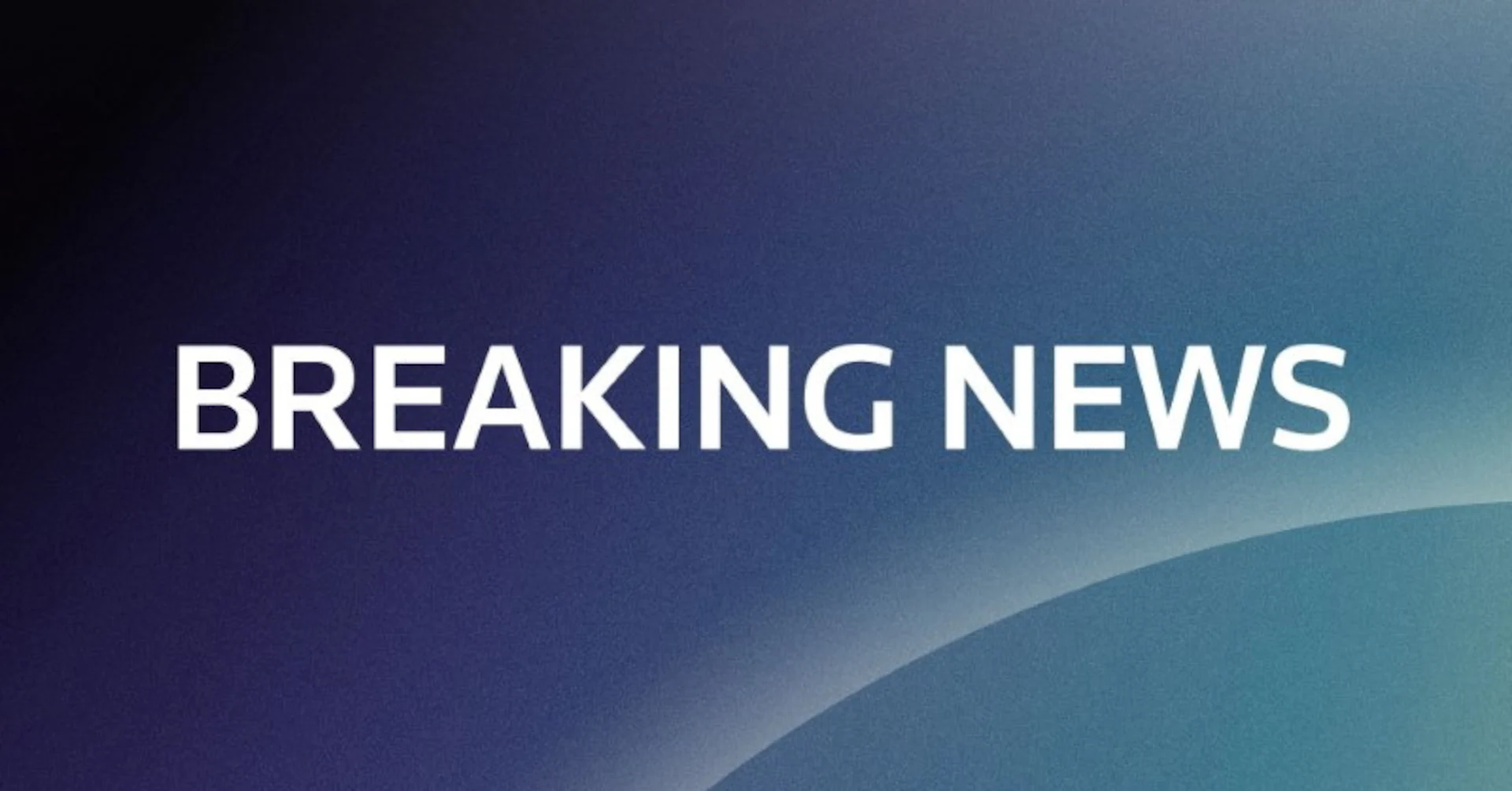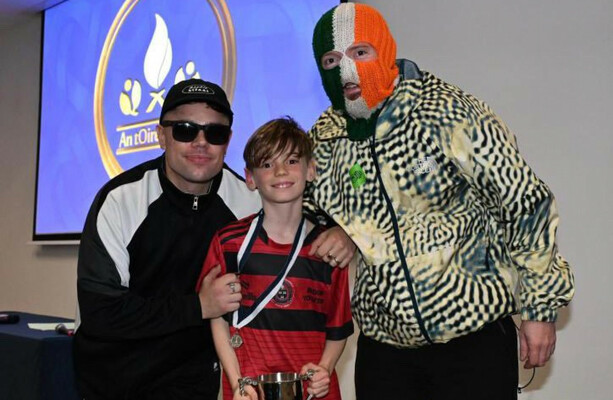Copyright thejournal

We need your help now Support from readers like you keeps The Journal open. You are visiting us because we have something you value. Independent, unbiased news that tells the truth. Advertising revenue goes some way to support our mission, but this year it has not been enough. If you've seen value in our reporting, please contribute what you can, so we can continue to produce accurate and meaningful journalism. For everyone who needs it. One-off amount I already contribute Sign in. It’s quick, free and it’s up to you. An account is an optional way to support the work we do. Find out more. Investigates Investigates Money Diaries The Journal TV Climate Crisis Cost of Living Road Safety Newsletters Temperature Check Inside the Newsroom The Journal Investigates Daft.ie Property Allianz Home The 42 Sport TG4 Entertainment The Explainer A deep dive into one big news story Sport meets news, current affairs, society & pop culture have your say Or create a free account to join the discussion Advertisement More Stories Our illustration features Somali-Irish activist Ifrah Ahmed, who helped bring about the 2012 legislation criminalising FGM in Ireland.Alamy InvestigatesFemale Genital Mutilation Over 330% increase in demand for Female Genital Mutilation treatment in Ireland Health chief calls for a roll-out of regional FGM clinics to cope with soaring waiting lists for health services. 12.06am, 5 Nov 2025 Share options WHEN SOMALIAN ASYLUM seeker Ayan* arrived in Ireland earlier this year, she hoped to put the pain of her childhood behind her. When she was eight years old, she was forced by her family to undergo a brutal and barbaric ritual which left her scarred and requiring medical treatment to this very day. “When they finished cutting, they tied my legs together for a week so the stitches wouldn’t open,” she told The Journal Investigates. “But they did open, and I had to go through it all over again.” The 23-year-old is one of a growing number of Female Genital Mutilation (FGM) survivors who have fled their home countries and sought protection in Ireland. But despite receiving refugee status, Ayan and many others face another ordeal – a one-year wait to access specialist medical care. Migrant support groups have reported referring up to eight women a month to Ireland’s only FGM clinic, which The Journal Investigates can reveal has experienced a staggering 338% increase in demand for its services. Run by the Irish Family Planning Association (IFPA), the Dublin-based centre is providing care and treatment to women and adolescents throughout the country. And it is crying out for funding to be able to provide the service patients deserve. Speaking to The Journal Investigates, IFPA Chief Executive Niall Behan said current service provisions are “neither fair to clients nor sustainable for the IFPA”. “What is needed is a national network of state-funded FGM treatment services,” he said. “Without dedicated funding, other primary care providers cannot be expected to fill the significant gaps around the country. “It is not appropriate that women have to travel from all parts of the country to access specialist care with the IFPA service in Dublin.” An Irish Family Planning Association (IFPA) clinic in Dublin city centre.Rollingnews.ie Rollingnews.ie Investigations like this don’t happen without your support… Impactful investigative reporting is powered by people like you. Support The Journal Investigates Need outstripping capacity Most of those using the service here have sought protection in Ireland after fleeing their countries of origin where the barbaric practice is carried out. FGM involves the cutting or removal of a girl’s outer genitalia, usually for cultural, religious or social reasons. It has no medical benefit and can cause lifelong physical and psychological harm to those forced to undergo the cruel practice. Primarily carried out in parts of Africa, the Middle East and Asia, it is recognised internationally as a severe violation of human rights. Ireland criminalised FGM in 2012, introducing extraterritorial powers to prosecute residents involved in the practice overseas, a law seen at the time as a landmark in protecting migrant women and girls. Advertisement Two years after the practice was criminalised here, the IFPA set up the country’s first FGM clinic, funded by the HSE as a pilot programme. However, demand for treatment has grown “exponentially”, Behan said. In 2021, the IFPA provided 55 FGM treatment service appointments, including both medical consultations and counselling sessions. At the end of 2023, the clinic had provided 241 appointments in the previous 12 months – a 338% increase in two years. Last year, there was a slight decrease, with 224 appointments provided. Despite additional funding from the HSE to provide FGM services in 2024 and 2025, the IFPA said “the current need far outstrips the capacity of the clinic”. Wigdan Gasmalla, a women’s health officer with Dublin-based migrant support group AkiDwA, said she now refers up to eight women a month for specialist treatment. “There are so many young women that have been subjected to FGM, and they are severely mutilated,” she told The Journal Investigates. “They come to me to the office, and they would complain about recurring infections and all sorts of health issues, and I can’t do anything about that. “I just refer them to the IFPA clinic but they are overwhelmed. Waiting times have gone now to 12 months-plus. It used to be weeks, then a month, then four or five months.” Dr Caitríona Henchion, IFPA medical director said HSE funding allocated to the clinic in July has done little to improve current waiting times for the service. “Despite our best efforts, the current need outstrips the capacity of our clinic, even with the additional funding,” she told The Journal Investigates. “It is clear that a single service is no longer sufficient to meet the needs of the population of FGM survivors in Ireland.” We put the service concerns to the HSE, with a spokesperson stating in response that further expansion of FGM care “could be considered” after “reviewing the outcomes and activity from the extended programme”. This, a spokesperson said, would ”inform the development of a business case”. Campaigner ‘shocked’ at services Somali-Irish activist Ifrah Ahmed, who helped bring about the 2012 legislation criminalising FGM, says Ireland’s health system is failing FGM survivors. “If a refugee woman lives outside Dublin and she is suffering and needs to see a gynaecologist, she can only be seen by the one clinic in the whole country that specialises in FGM,” Ahmed said. “The one doctor who works there, I am sure she is exhausted, the number of women she has to see a week, a month.” Ahmed said she was “shocked” to recently meet with 15 young women from asylum centres here still struggling to access basic health care nearly 20 years after she first began campaigning. There are still big gaps, in everything from translation services to waiting lists. It really should have improved since almost 20 years ago. Extra HSE funding over the last two years has allowed the IFPA clinic to apply more doctor, midwife and counselling time, as well as appointments to ease waiting lists. However, more is needed to clear the backlog. “If more activity is to be delivered, the HSE cannot rely on one service, the IFPA, to be the sole national focal point for treatment,” said Niall Behan. “More services are needed. “The IFPA has developed a model of care which could be replicated by the HSE in partnership with other providers nationwide if appropriate funding and supports were made available. “We do our best to support the capacity building of other providers through information and training for healthcare services,” the IFPA chief said. Somali-Irish activist Ifrah Ahmed (second from left) with Caitríona Ingoldsby, Ambassador of Ireland to Kenya (left) and then Tánaiste Micheál Martin last year.Ifrah Ahmed Ifrah Ahmed The Journal Investigates is dedicated to lifting the lid on how Ireland works. Our newsletter gives you an inside look at how we do this. Sign up here... You are now signed up Ten-fold increase in protection applications Figures obtained by The Journal Investigates reveal that 1,282 women and girls have sought asylum in Ireland since 2020 citing FGM as their primary reason for seeking protection. The numbers have surged nearly tenfold since 2020, from fewer than 50 applications a year to over 400 in 2024, according to International Protection Office (IPO) data obtained under the Freedom of Information (FOI) Act. In the first nine months of this year alone, 310 women and girls have applied for asylum on the basis of FGM. However, IPO officials warn these figures do not represent the true scale of women and girls who are living in Ireland with the consequences of FGM, as no up-to-date data currently exists. The last official survey to capture FGM prevalence in Ireland dates back to 2016. No updated figures were released in the 2023 Census, despite growing migrant populations from countries where FGM is endemic. “The painful thing is there are no statistics for even the number of migrant women who are FGM survivors now in Ireland,” Gasmalla said. “We know the number is huge now, possibly triple what it was in 2016.” In a statement to The Journal Investigates, an IPO spokesperson said it is committed to ensuring that staff are fully trained to “identify, understand and sensitively handle” claims involving gender-based persecution. “In 2023, the IPO partnered with the Dublin Rape Crisis Centre to deliver specialist training on gender-based violence. “This training is now delivered on an annual basis and forms part of the IPO’s ongoing professional development framework.” The HSE said that FGM is included in the core postgraduate curriculum for obstetrics and gynaecology. A spokesperson also said the National Clinical Guidelines on Management of FGM also recommends that every hospital should have a designated consultant, senior midwife or nurse with a “special interest” in FGM. The Health Service Executive (HSE) sign at the organisation’s HQ in Kildare.Rollingnews.ie Rollingnews.ie Health system changes needed For Ifrah Ahmed, a survivor of FGM herself, the issue goes beyond numbers. “When Ireland accepts refugees and asylum seekers, they have accepted people to come, and those people should get the help they need,” she said. “These women who have gone through FGM deserve the rights that every woman gets. The medical system should change and allow them to access the services they need.” Speaking from her accommodation in Dublin, Ayan acknowledged she will have to wait for the surgery she needs to address her ongoing health problems caused by the FGM she suffered as a child in Somalia. But despite regularly falling ill, Ayan does not complain. “The main reason why I am an immigrant in this country is so I can be safe, the recovery will come even though I have to wait,” she said. * Name has been changed to protect Ayan’s identity. The Journal Investigates Reporter: Patricia Devlin • Editor: Noel Baker • Video Editor: Nicky Ryan • Social Media: Cliodhna Travers • Main Image Design: Lorcan O’Reilly Investigations like this don’t happen without your support... Impactful investigative reporting is powered by people like you. Over 5,000 readers have already supported our mission with a monthly or one-off payment. Join them here: Support The Journal Patricia Devlin Send Tip or Correction Embed this post To embed this post, copy the code below on your site Email “Over 330% increase in demand for Female Genital Mutilation treatment in Ireland”. Recipient's Email Feedback on “Over 330% increase in demand for Female Genital Mutilation treatment in Ireland”. Your Feedback Your Email (optional) Report a Comment Please select the reason for reporting this comment. Please give full details of the problem with the comment... Female Genital Mutilation Ifrah Ahmed International Protection Applicants Investigates Irish Family Planning Association News in 60 seconds BOARD MEMBERS Six new experts and activists appointed to Irish Human Rights and Equality Commission New Yorkers vote in mayoral race, where socialist Mamdani is frontrunner despite Trump attack home comforts Liverpool end Real Madrid's perfect Champions League start with crucial 1-0 win at Anfield Flights halted at Brussels Airport due to suspected drone sightings Here's What Happened Today: Tuesday The Last Word Matt Cooper learns on-air that TD Niall Collins also received media training from Ivan Yates Avian Influenza Farmers call for housing order as bird flu outbreak confirmed in commercial turkey flock in Carlow The Last Word Matt Cooper learns on-air that TD Niall Collins also received media training from Ivan Yates Circuit Criminal Court Couple who fraudulently claimed over €114,000 in social welfare payments jailed for 18 months Mystery solved in Co Clare after ‘lion like’ animal turns out to be ‘dog with a fresh haircut’ Irishman charged with murder of American nurse in Hungary more from us Investigates Money Diaries The Journal TV Journal Media Advertise With Us About FactCheck Our Network FactCheck Knowledge Bank Terms & Legal Notices Terms of Use Cookies & Privacy Advertising Competition more from us TV Listings GAA Fixtures The Video Review Journal Media Advertise With Us Our Network The Journal FactCheck Knowledge Bank Terms & Legal Notices Terms of Use Cookies & Privacy Advertising Competition © 2025 Journal Media Ltd Terms of Use Cookies & Privacy Advertising Competition Switch to Desktop Switch to Mobile The Journal supports the work of the Press Council of Ireland and the Office of the Press Ombudsman, and our staff operate within the Code of Practice. You can obtain a copy of the Code, or contact the Council, at https://www.presscouncil.ie, PH: (01) 6489130, Lo-Call 1800 208 080 or email: mailto:info@presscouncil.ie Report an error, omission or problem: Your Email (optional) Create Email Alert Create an email alert based on the current article Email Address One email every morning As soon as new articles come online



